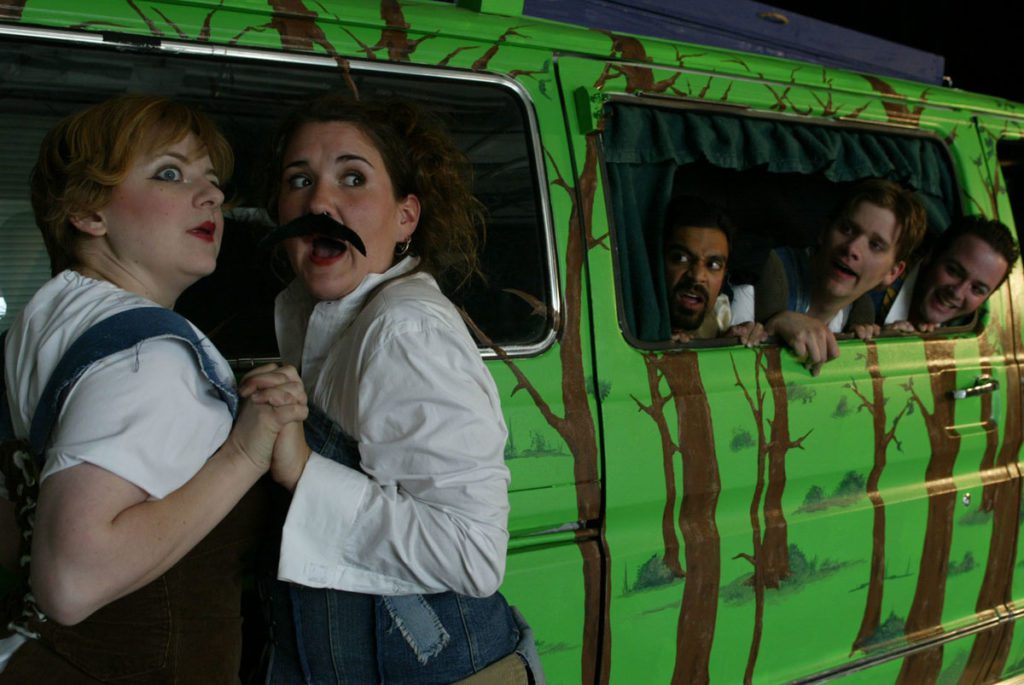Imagine, if you will, theatre that blends the irreverent energy of Monty Python and Kids in the Hall, the decorous poetry of Shakespeare, the absurdist zeal of French playwright Eugene Ionesco and the toe-tapping, finger snapping rhythms of your best off-Broadway show. These disparate dramatic elements come together in “Titus Andronicus: The Musical,” a liberal interpretation of Shakespeare’s bloodiest tragedy currently enjoying a revival at Denver’s Buntport Theatre.
The Denver-based theatre company has devoted itself to pushing the boundaries of comedy and dramatic convention since 1998, with plays and skits that are rooted simultaneously in a highbrow literary tradition and an uninhibited silliness. The Buntport’s productions have incorporated subjects ranging from the angst-ridden German novelist Franz Kafka to the Greek epic poet Homer.
For those who have had an aversion to Shakespeare’s lofty language and long-winded intrigue, the Buntport Theatre’s impertinent spin on one of the Bard’s most melodramatic plots is both refreshing and redemptive. The witty asides, striking sight gags, and brilliant feats of physical comedy breathe life into what is traditionally viewed as Shakespeare’s most unoriginal tragedy. The five players display a consummate energy and enthusiasm as they take on multiple roles and laboriously move their one piece of scenery, a converted Econoline van that serves as the center of action. This creativity and endless innovation render the unlikely parody entirely natural, as if Shakespeare had rewritten the ancient Roman drama specifically as a comedic vehicle.
And, of course, there’s the music. The play’s constant violence and high death toll make the original score all the more inappropriate and effective in its irreverence. In one of the drama’s most traditionally taut and disturbing moments, the title character must have his hand amputated in order to appease the emperor. In the Buntport’s send up, the tension is broken as the characters break into a tweaked version of “Somewhere Beyond the Sea.”
The troupe works out of a transformed warehouse, and the players expertly manipulate the intimate space to engage the audience. The viewers are exhorted to participate by the sheer immediacy of the action. When the music sounds, it is as if one is at a casual concert at a comfortable club. When the pitch of the players’ voices hit their heights, the onlookers are a forcible part of the action by their very proximity. Finally, when the comedy finds its stride, creating a deft balance between the high minded and the profanely wacky, one cannot help but become immersed in the lunacy of it all.
It is in their expert fusion of high drama and sheer silliness, their uncanny ability to reconcile the polar opposites of the stage that the Buntport troupe distinguishes itself as a group of comedians. This subtle and elusive equilibrium is what marks the best comedy and the best comedians. The skill the Buntport players display in walking the line distinguish them not only as local notables, but as comedic performers worthy of national attention.
-Adam H. Goldstein, January 20, 2005, The Metropolitan
